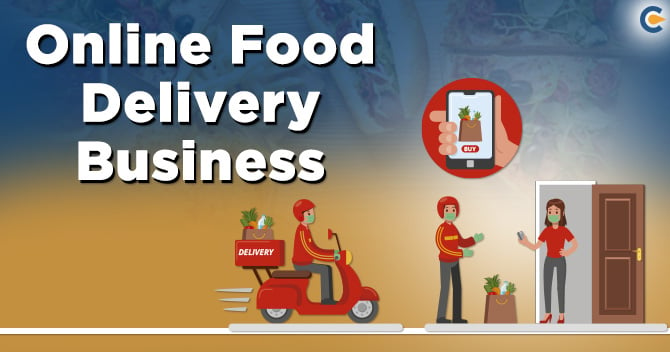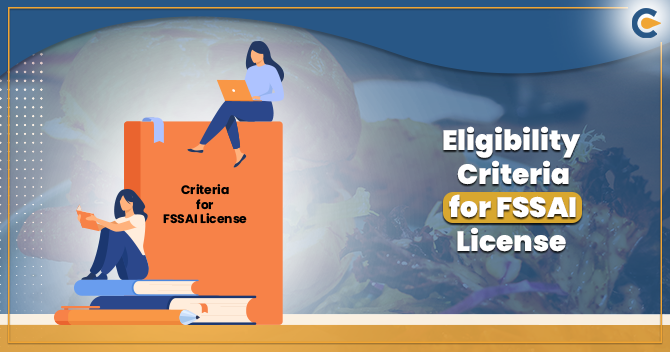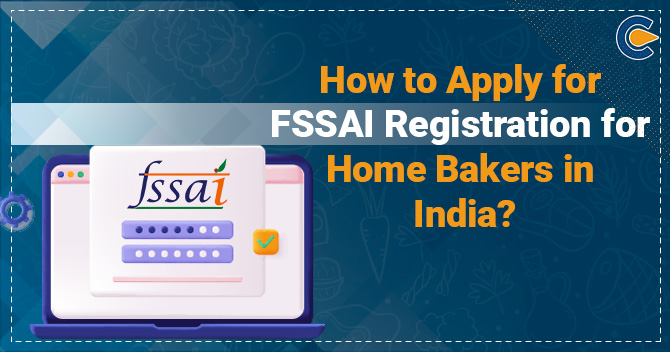Are you planning to run a Food Delivery Business in India? Though it is undeniably a profitable business opportunity, that also needs to comply with few regulations. Most important, you are required to attain several essential licenses for running a Food Delivery Business in India legally.
If you’re planning to start a Food Delivery Business in India, rest guaranteed that no one can ever go wrong with any food business in India. The demand for efficient food will always occur, specifically in today’s ‘microwave generation’ where students and specialists reside away from their families and survive on quick takeaway, or nutrient-deficient food or worse. In many of the cases, diet, hygiene, and taste are compromised – the three key elements that qualify food as edible.
License required for starting Food Delivery Business in India
The list of compulsory licenses you will need to attain is as follows-


Shop and Establishment License
Shop and Establishment Act works on the aim to secure the unchanging benefits for the employees, who are working in various establishments such as shops, commercial establishments like residential hotels, restaurants, and theatres. Under the course of the Act, Shop and Establishment License is necessary for all businesses in India.
Health Trade License
A trade license is a certificate which permits the person seeking to open a business to commence a particular trade for a specific area or location. The License does not allow the holder to make any other trade other than that it is issued for. Also, the License does not pass to any kind of property ownership to the holder of the License.
The process for applying for Health Trade License in India is a simple task. The procedure for obtaining a License is different for Municipal Corporation of every state. The applicant should apply for the Health License at any State’s Municipal Corporation website. The forms for the License are available at the site of each State’s Municipal Corporation.
FSSAI License
The need to obtain a FSSAI license is to ensure that the food products that are packed, sold, or operated by Food Business Operators are upto the quality standards as arranged by the FSSAI. The decisive area of the Food Safety and Standards Authority of India is to decrease the odds of inferior products, food contamination and advance the responsibility of producers by issuing them a food license for food delivery business in India.
The Food Safety and Standards Act, 2006[1], is the organizational body for regulating the safety of the food products. The manufacturer, sellers, restaurant owners, or any other food-related business entity are required to acquire a 14-digit license number.
Trademark Registration
A trademark can be defined as a logo, symbol, tagline, or a combination of both that represents any brand’s identity. Frequently, throughout the trademark registration procedure, the registrar will raise objections on the proposed trademark if it violates any rules or laws of trademark registration. This could be due to several reasons like similarity with any existing logo, offensive to any particular religion, absence of separate design, etc. In the occasion of a trademark objection, a comprehensive reply needs to be filed within a month from the date of issuing the complaint.
GST Registration
Goods and Service Tax is the most substantial tax reform levied on the products and services, which includes the State and Central taxes. That will help the consumer only to bear GST imposed by the last seller of the supply chain.
GST Registration Process is compulsory for businesses whose turnover falls under the criteria mentioned above. In case such a business organization carries on business without registering under GST, it will be considered as a punishable offense and will be liable to pay hefty penalties as specified under Section 2 (44) of the CGST Act, 2017.
Signage License
The requirement for advertising your products through tittle-tattle, recommendations, artworks, and descriptions is effortlessly reasonable. After this, create a presence is necessary for the existence of your business. For employing various marketing strategies, you will need a Signage License which can be obtained from your local municipal corporation.
Read our article: A Detailed Guide on Penalties under FSSAI Act
Documents required for Food Seller
- Permanent Account Number
- A food license – This is important if you are running a food business from home.
- NOC- No Objection Certificate should also be obtained from the society/residential premises you are operating out of.
- Value Added Tax (VAT)
- Central Excise Registration
Apart from the documents mentioned above, the following might also be needed
- Employee Provident Fund Registration & ESI (Employee State Insurance) Registration
- Service Tax Registration
- TAN (Tax Collection & Deduction Account Number)
- VAT/ CST Registration
- Shops & Establishment License
- Importer Exporter Code
- Professional Tax
Procedure for FSSAI Registration with CorpBiz
- Complete a Simple Form: You need to fill our FSSAI application form and provide details about your food business.
- Documents Submission: Your FSSAI License application, along with other declarations
- FSSAI license gets Issued
Effect of Food delivery Business in India
The format of Food Delivery Business in India or the take-out takes more customers in positions such as malls, offices, and big-party orders for residential complexes. People misplaced breakfast on the way to work. People who wish a better choice of business lunch or party. Everybody appears to be in admiration of the food delivery business choice for the suitability and instantaneous basis of food at home-based. Also, the suitability of organization foodstuffs from your portable app or web browser has surely engaged away approximately marketplace share from the trusted ‘Kirana’ or the mom-n-pop stores.
India is the 6th main grocery market in the world. The planned sector, as run by about of the business mentioned above, makes up only for 5-8% market share of the grocery corporate. The massive mainstream is still possessed by these local marketplaces and other stores. This has some deceptive influences on the brick-and-mortar arrangements of in-dining restaurants as more people prefer to have restaurant-style cuisines right in the privacy of their homes or workplaces, but the effect is not so much as it may appear to be.
Things to Ponder for a Successful Food Delivery Business in India
Before introduction of food delivery business apps such as Uber Eats, Swiggy and Zomato became prevalent, Dabbawalas of Mumbai with their modest cooperative prototypical of transporting homemade food to the city specialists and workforces was previously renowned as an exclusive model constructed upon an everyday requirement. Over the centuries, a collection of food delivery business expanded across India.
Considerate the Worldwide Story of Food Delivery Business
The key evolution factors for the Food Delivery Business in India whether consecutively the productions through websites or mobile apps or both.
- Well-off middle-class people with a consistent expenditure capacity on variety of foods and cafeteria delicacies of their fondness.
- High-speed entree to mobile web and smartphone devices for considerable inhabitants.
- Mobile apps having the role of a key existence factor for the majority of population in India.
- A variation in popular cuisines and tastes to try different food items.
- A flourishing food scene with variability of quality cafeterias serving items with dissimilar price tags.
- Growing demand for faster and timely food delivery in India.
- Competitive pricing intensified by promotional offers and discounts being a key motivation for the customers to order more food.
- If you look carefully, each of these factors is common to the urban Indian population who are progressively getting into an affair with the food delivery apps and businesses.
Conclusion
The changing urban lifestyle of the average Indian is dramatic enough to be favorable for the food-on-the-go and rapid home delivery representations to grow at advanced rates. The ever-increasing residents crowded metro cities, and longer travel times are drivers for the convenient, ready-to-eat, and cheaper options of having food and groceries delivered at your doorstep. Companies that are aware of the considerable potential for growth may venture straight in, but only the fittest will survive. Businesses who keep their value proposition and their brand active in consumer’s minds will take the most significant share of the Indian food service pie.
Read our article:What is National Food Security Card, and How to download it?











